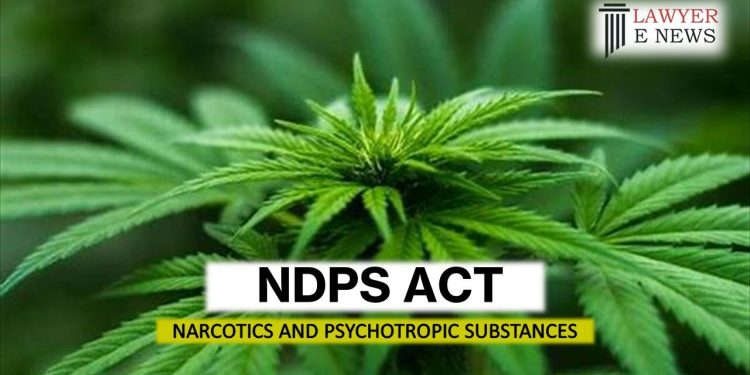Police Officers Can’t Disbelieve Public Officer Evidence – Allahabad High Court Denies NDPS Bail

The Allahabad High Court recently found that an accused who was allegedly involved in a case involving the recovery of 1,025 kg of marijuana could not be granted bail since he was a police officer.
The claim that the arresting officers violated the Narcotic Drugs and Psychotropic Substances Act’s statutory provisions for search and seizure was rejected by Justice Shekhar Kumar Yadav.
The applicant had stated that despite the alleged recovery being effected on the Highway, the police had not gathered any public witnesses for the alleged recovery operations.
“The recovery was made at night, and no public witnesses could be found because of the pandemic that was in effect at the time and the isolation. In addition, it is well established in law that a public official’s testimony cannot be suppressed just because of his or her status as a police officer.
The applicant was seated on the dumper truck that co-defendant Vinod Singh was operating when during a patrol large quantities of marijuana, totaling 1025 kg, were found. The applicant and the co-accused were therefore arrested in accordance with Section 8/20/29 of the NDPS Act.
The applicant submitted a section 439 CrPC application requesting an increase in bail.
The applicant’s attorney argued that the applicant was only a passenger in the car and that neither he nor any of the contraband that was found in his possession was aware of its recovery. The attorney further argued that the applicant must be released on bail because the mandatory provisions of Sections 42, 50, 52, 53, and 57 of the NDPS Act were not followed during the applicant’s detention.
In a statement provided by the applicant pursuant to Section 67 of the NDPS Act, the applicant voluntarily confirmed his involvement in interstate trafficking, according to the State’s attorney. The attorney added that because the accused were searched in front of a gazetted officer, Section 50 of the NDPS Act was complied with. The attorney added that as the amount recovered in the current case exceeds the commercial quantity, section 37 of the NDPS Act is attracted, making the bail application subject to rejection.
The Supreme Court’s ruling in Union of India vs. Md. Nawaz Khan, which found that an accused person’s lack of possession of contraband cannot be the only basis for granting bail, was cited by the court.
According to the precedent set forth above, the High Court and this Court must determine whether there are good reasons to think that the accused has not committed a crime and whether he is likely to commit one while out on bail before granting bail. Stringent guidelines for the grant of bail under the NDPS Act have been prescribed in light of the nature of the offences punishable under the Act and in an effort to stop the drug trade’s threat to the nation, it was held there.
Regarding the failure to find the illegal substance in the respondent’s possession
The court noted that “the lack of the contraband on the person of the accused does not exonerate him of the level of scrutiny needed under Section 37 (1)(b)(ii) of the NDPS Act,” citing the decision in Union of India v. Rattan Mallik.
Regarding eligibility for bail, the court cited the Supreme Court’s decision in State v. Syed Amir Hasnain, (2002) 10 SCC 88, which found that an accused person is not eligible for release under the terms of the NDPS Act unless Section 37 of the Act is complied with.
It is clear that the recovery was made at night, and because of the pandemic that was in effect at the time and the seclusion, no public witness could be gained, according to the court’s ruling on the police’s failure to call any witnesses in the alleged recovery procedures. In addition, it is well established in law that a public official’s testimony cannot be suppressed just because of his or her status as a police officer.
The bail application was thus denied. According to a review of the information amassed thus far in the inquiry, it is not possible to rule out the accused’s involvement in the current crime at this time. There is no evidence to support unjustly accusing the accused/applicant. Therefore, there is no justification to grant the accused petitioner bail at this time.
Shankar Varik @ Vikram
vs
Union of India






